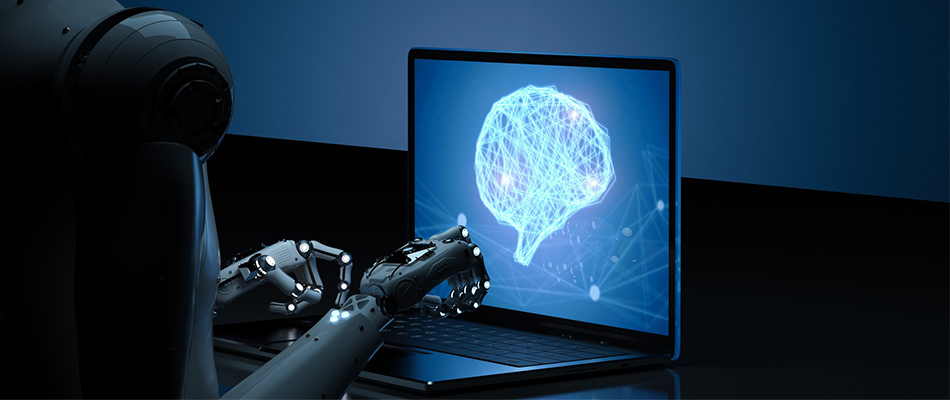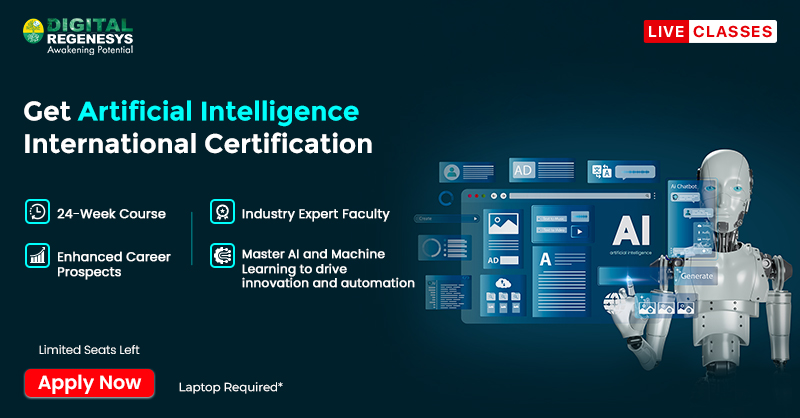What is AGI (Artificial General Intelligence)? Explore the Tools and Applications Here!

Artificial General Intelligence (AGI) is an exciting new technology that aims to create machines that can think, learn, and solve problems like humans. Understanding what is AGI (Artificial General Intelligence) is important because, unlike traditional AI, it can adapt to new situations and improve on its own. This makes AGI very powerful and flexible, with the potential to transform industries like healthcare, finance, and education. AGI has the ability to open up many new opportunities, changing how we work, solve problems, and make decisions.
In this article, we will look at the critical parts of AGI, the tools used, why it’s essential, and how it is already making a difference.
What is AGI (Artificial General Intelligence)?
Artificial General Intelligence is an advanced type of AI that can do any task a human can do. Unlike regular AI, which only does specific tasks, AGI can think, learn, and solve different problems like a person. Understanding what is AGI (Artificial General Intelligence) is important because it can understand new situations and improve itself without help. This makes AGI very powerful and flexible. However, it is essential to make AGI complex and ensure it is safe and follows human values. AGI could change how we work, live, and use technology. If used correctly, AGI could bring big improvements in health and education, making life better and wiser for everyone.
What is the Artificial General Intelligence Life Cycle?
The life cycle of Artificial General Intelligence (AGI) involves steps needed to develop, train, and improve AGI systems. Understanding what is AGI (Artificial General Intelligence) and its life cycle is essential for creating systems that can think, learn, and adapt like humans. Each stage is essential in ensuring AGI models are built, tested, and refined to perform effectively. Following these stages helps ensure AGI systems are reliable and work as intended.
Below are the stages in the artificial general intelligence lifecycle:
- Data Collection – This is the first step in which large amounts of data are gathered from different sources. This data helps AGI learn about various topics and situations.
- Data Preparation – The collected data is cleaned and organised to ensure it is useful and ready for training in the AGI system.
- Model Development – The AGI model is designed and built in this step. Developers create algorithms that help the system learn and make decisions.
- Training – The AGI model is trained with the prepared data. Here, the system learns to recognise patterns and adjust its responses based on what it learns.
- Testing and Evaluation – The trained AGI is tested to see how well it performs. This helps find areas for improvement and ensures the system can handle different tasks.
- Deployment – After testing, the AGI system is put to use. It starts performing tasks and interacting with the world.
- Monitoring and Maintenance – The AGI is regularly checked after being deployed to make sure it works well. Updates and adjustments are made to keep it practical.
- Continuous Learning – The AGI keeps learning from new data and experiences. This helps it get better and adapt over time.
Key Components of Artificial General Intelligence
The key components of AGI make it capable of human-like intelligence and learning. To understand what is AGI (Artificial General Intelligence), it’s important to know these main parts. They include advanced machine learning algorithms, neural networks that mimic the human brain, and natural language processing for understanding and communication. AGI also uses deep learning to enhance its decision-making and problem-solving skills. These components help AGI learn, adapt, and manage complex tasks independently.
Below are the key components of artificial intelligence:
- Machine Learning – AGI uses machine learning to understand and learn from data, which helps it adapt to new tasks and situations.
- Natural Language Processing (NLP) – NLP allows AGI to understand and create human language, making communication more accessible and natural.
- Cognitive Computing – AGI mimics human thinking to make decisions, solve problems, and handle tasks requiring reasoning.
- Neural Networks – These brain-inspired systems help AGI process information and learn like humans.
- Robotics Integration – AGI can be paired with robots so machines can interact with their surroundings, do tasks, and adjust based on feedback.
- Self-Learning – AGI can learn independently without human help, allowing it to manage different situations independently.
Tools & Technologies in Artificial General Intelligence
AI uses different tools and technologies to create smart systems to learn and make decisions. These tools help data scientists and engineers develop, train, and use AI models. Once you understand what is AGI (Artificial General Intelligence), you must also learn the importance of the essential tools and technologies. They help with tasks from simple data work to building complex models. Each tool makes AI projects more accessible and more effective.
Here are the main tools and technologies in artificial general intelligence:
- TensorFlow – A free tool by Google that helps users build and train machine learning models. It’s easy to use and prevalent in the AI world.
- PyTorch – Supported by Facebook, PyTorch is flexible and favoured by researchers. It’s great for trying out and testing new ideas in AI.
- Keras – It works with TensorFlow and has an easy-to-use interface for building neural networks, making creating complex models simpler.
- Scikit-learn – A beginner-friendly library with simple data analysis and machine learning tools.
- OpenAI GPT – An advanced tool that creates human-like text that is perfect for chatbots and content creation.
- RapidMiner – It is a user-friendly platform that helps build predictive models with minimal coding, simplifying data science.
Why is Artificial General Intelligence important?
Artificial General Intelligence (AGI) is important because it can do many tasks with human-like thinking. AGI can learn, adapt, and think independently, making it useful and practical in many areas. It improves how we solve problems, make decisions, and work more efficiently. Understanding what is AGI (Artificial General Intelligence) highlights its potential to reshape how we approach complex tasks.
Below are the reasons why AGI is important:
- Better Problem-Solving – AGI solves complex problems by studying data and making human-like decisions.
- Boosts Automation – AGI automates tasks, reducing manual work and increasing productivity.
- Better Decisions – AGI provides detailed analysis and advice for more thoughtful choices and risk management.
- Faster Research – AGI speeds up research by quickly processing data, leading to faster discoveries.
- Personalised Services – AGI customises services to meet individual needs for a better experience.
Applications of Artificial General Intelligence in Various Industries
Artificial General Intelligence (AGI) can change how industries work by making tasks more accessible and efficient. Understanding what is AGI (Artificial General Intelligence) shows how it can bring more intelligent solutions in fields like healthcare, finance, and education, helping to boost productivity and new ideas. Its applications can help industries solve problems, adapt to changes, and work more smoothly. This makes AGI an essential tool for improving industries and improving work methods.
Here are the applications of AGI in various industries and the advantages it brings to each:
1. Healthcare
AGI can change healthcare by helping with diagnoses, treatment plans, and personalised patient care. With its ability to solve problems like a human, AGI can look at large data sets for quicker, more accurate diagnoses. It can also help in medical research by simulating complex scenarios for drug discovery.
2. Finance
AGI can improve finance by optimising trading, predicting market trends, and enhancing fraud detection. By studying large amounts of data and spotting patterns, AGI helps financial institutions make better decisions and manage risks effectively.
3. Education
AGI can make learning more personalised and engaging. It can adapt teaching to each student’s learning style and pace. AGI-powered tutors can answer questions and give real-time feedback, making education more effective.
4. Manufacturing
AGI can boost production through intelligent automation and systems that manage the process from start to finish. Machines with AGI can fix problems, improve workflows, and keep high-quality production with little human help.
Learn How to start a career in Artificial Intelligence Here.
How to Get Started with Artificial General Intelligence?
Understanding what is AGI (Artificial General Intelligence) is the first step to building essential skills and gaining experience in this field. To get started with AGI, it’s important to develop key skills and deepen your knowledge. Familiarising yourself with essential tools and technologies will help you create a solid base for AGI. This mix of skills, learning, and the right resources will set you up for a successful journey in artificial general intelligence.
Here are the pathways that can help you get started with Artificial General Intelligence:
- Learn Relevant Skills – Start by learning basic business, technology, and design knowledge. You can do this through school, online courses, or real-life experience.
- Pursue Certifications – Enrol in an Artificial Intelligence Course from Digital Regenesys. This course gives flexible learning and hands-on training to help you get ready for an AI career.
- Build Connections – Meet and connect with people in the industry to grow your network. Go to workshops and events to learn more and find job opportunities in AI.
- Apply for Jobs – Once you have the right skills and experience, apply for AI jobs. Look for positions in different industries where AI is needed.
Therefore, knowing what is AGI (Artificial General Intelligence) is crucial because it can change the way we work and solve problems. AGI can think, learn, and make decisions like a human, which makes it worthwhile in many areas, such as healthcare, finance, and education. To start with AGI, learning skills, getting certified, and building connections are essential. With the proper preparation, AGI can significantly improve everyone’s life. Begin your journey in AGI by developing the essential skills and expertise needed for success. Enrol in the course at Digital Regenesys, which offers to enhance your knowledge and advance your career in this transformative field.

Last Updated: 11 September 2025